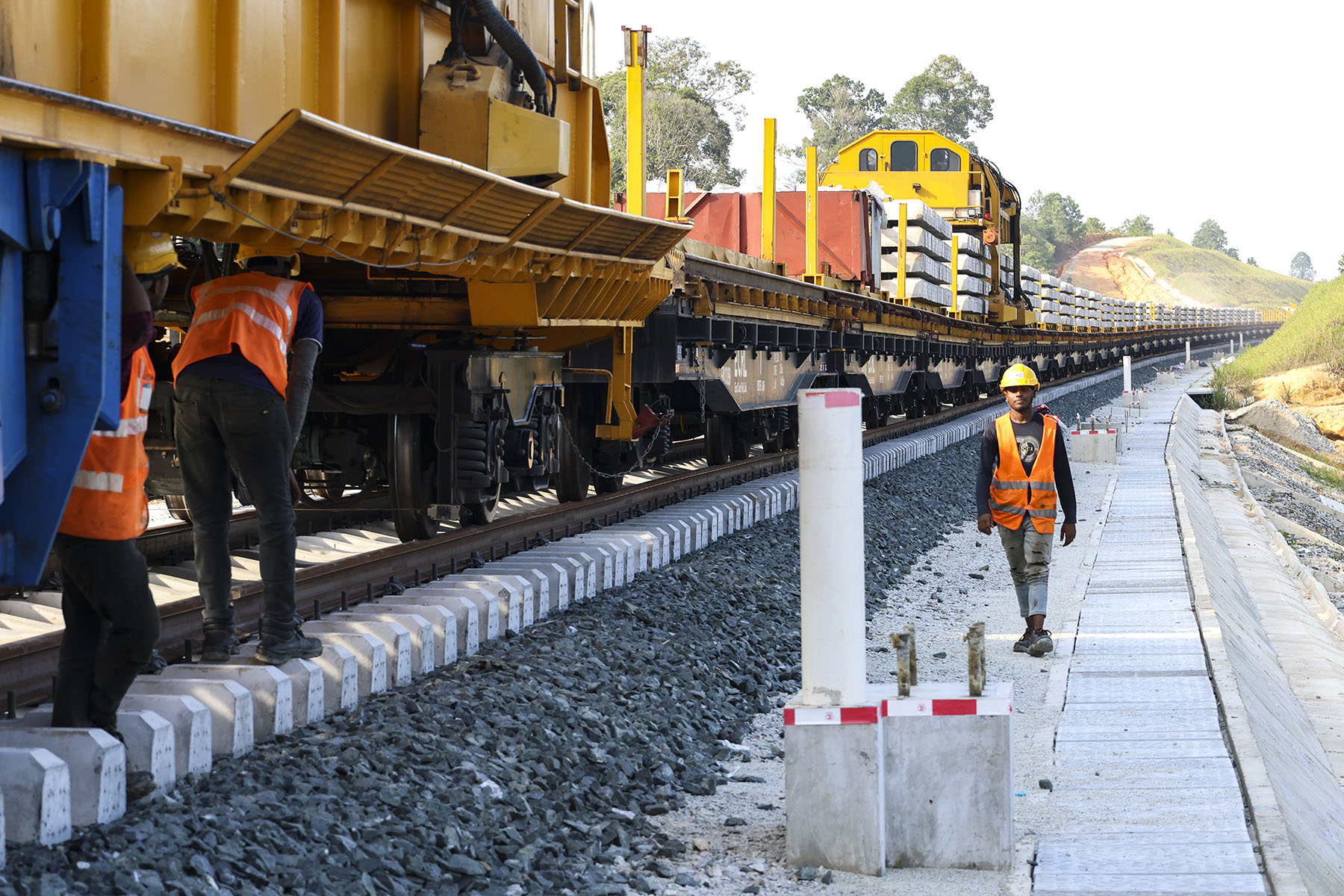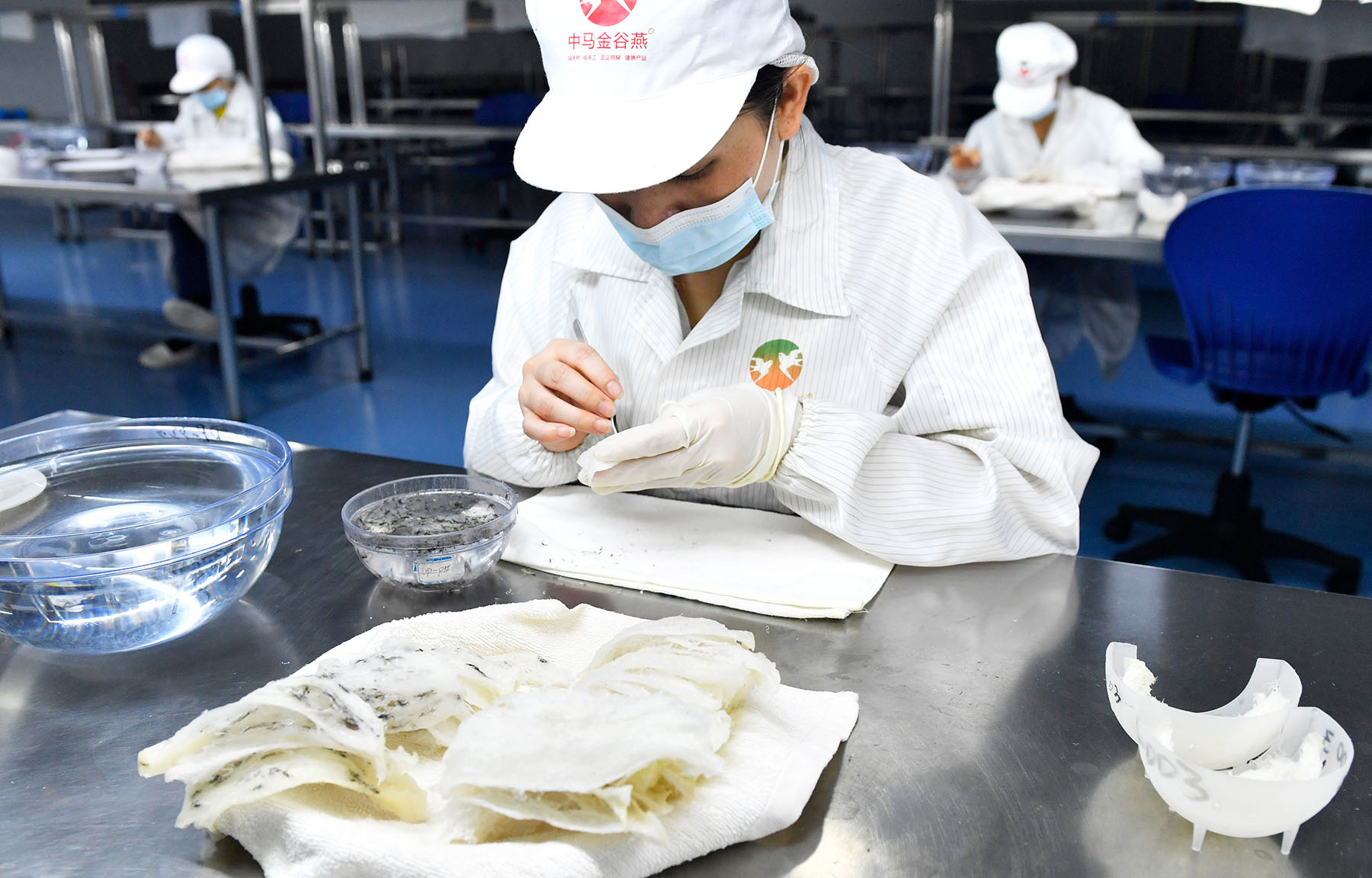Infrastructure and agriculture prime sectors of business

As regional economic integration and the Belt and Road Initiative continue to expand, trade cooperation between China and Malaysia is experiencing robust momentum. From infrastructure and agriculture to bilateral trade and industrial collaboration, the two countries are entering a new stage of multifaceted and high-level engagement, according to officials and trade analysts from both sides.
The latest data from China's General Administration of Customs indicate bilateral trade between China and Malaysia reached an all-time high of $212.03 billion in 2024, marking a year-on-year increase of 11.4 percent. China exported $101.46 billion worth of goods to Malaysia, up 16.1 percent year-on-year, while imports from Malaysia stood at $110.57 billion, a 7.4 percent increase.
China has been Malaysia's largest trading partner for 16 consecutive years, while Malaysia is China's second-largest trading partner in the Association of Southeast Asian Nations and the largest importer of Chinese goods in the region. Notably, China's primary imports from Malaysia include integrated circuits, computers and components, palm oil and plastic products. Key Chinese exports to Malaysia include computers and components, ICs, clothing and textiles.
READ MORE: BRI railway to better link Malaysia
In particular, agricultural products have emerged as one of Malaysia's primary export categories to the Chinese market, with palm oil and durians continuing to gain popularity. In August 2023, Malaysia's fresh durians entered the Chinese market for the first time, expanding consumer choices and opening new opportunities for Malaysian agricultural exports. Malaysia became the fourth ASEAN country authorized to export fresh durians to China, following Thailand, Vietnam, and the Philippines. Previously, Malaysia mainly exported frozen durians.
Arthur Joseph Kurup, Malaysia's deputy minister of agriculture and food security, said this development has significantly enriched China's fruit market and expanded export channels for Malaysian agricultural products.
Flagship project
China's investments in Malaysia are increasingly diverse, with a significant focus on infrastructure. Chinese companies are engaged in constructing railways, bridges, hydropower stations, roads, subways and telecommunications infrastructure.
A cornerstone of the cooperation is the East Coast Rail Link, constructed by China Communications Construction Co. Spanning more than 600 kilometers, the railway starts in Kota Bharu on the border with Thailand, travels south to Kuantan, and then turns west toward Port Klang, cutting across the Malaysian peninsula.

Scheduled to begin operation by 2027, the project reached a major milestone in January with the successful laying of track in sections covering approximately 400 km between Maran in Pahang and Kota Bharu in Kelantan. In April, the 3.5-km-long Dungun Tunnel 1 was completed two months ahead of schedule. To date, 38 of the project's 41 tunnels have been completed.
"Dungun Tunnel 1 is a crucial link between Kota Bharu and Port Klang," said Darwis Abdul Razak, CEO of Malaysia Rail Link, the project owner. "Its smooth completion was made possible by the exceptional efforts, cutting-edge technologies and rigorous safety standards implemented by CCCC's project teams." He added the project has prioritized environmental protection and minimized disruption to local communities during construction.
At a recent joint operations and maintenance agreement signing between CCCC and MRL in Putrajaya, Malaysia, Chinese Ambassador to Malaysia Ouyang Yujing noted that the ECRL would play a pivotal role in driving growth, creating jobs and improving livelihoods. He expressed hope that both sides would continue to operate and maintain the project effectively, thereby maximizing its economic and social returns.
Malaysian Transport Minister Anthony Loke Siew Fook also underscored the importance of the ECRL as a crucial land bridge connecting Malaysia's eastern and western coasts. He said that by linking Kuantan Port and Port Klang, the railway would significantly enhance logistics efficiency and help Malaysia better integrate into the global trade network.
RCEP as a platform
Further reinforcing regional cooperation, China's Guangxi Zhuang autonomous region announced on April 7 it will leverage the Regional Comprehensive Economic Partnership to broaden and deepen trade with Malaysia. The initiative aims to expand bilateral trade volumes and contribute to building a closer China-ASEAN community with a shared future.
As China's only provincial-level region with both land and sea borders with ASEAN, Guangxi has been working to scale up trade with Malaysia. From January to February, Guangxi's total imports and exports with Malaysia surged to 2.9 billion yuan ($396 million) — up 63.2 percent year-on-year. Among the standout exports from Guangxi are lithium-ion batteries and electric vehicles. On the import side, Malaysian crude oil, palm oil, bird's nests, nuts and frozen fruits are enjoying robust sales in Guangxi's domestic markets.
Two-way investment between Guangxi and Malaysia is also becoming more dynamic. As of March, Guangxi had filed 58 non-financial investment projects involving Malaysian enterprises and institutions, with a cumulative actual investment of $1.37 billion. In addition, local companies had completed foreign engineering contracts worth a total of $210 million, with investments spanning manufacturing, mining and services.
ALSO READ: Xi lauds fruitful ties with Malaysia
Notably, the China-Malaysia Qinzhou Industrial Park in Qinzhou, Guangxi, and the Malaysia-China Kuantan Industrial Park in Malaysia's Pahang state have pioneered the "Two Countries, Twin Parks" model, offering a new platform for cross-border industrial collaboration. By the end of 2024, the Qinzhou park had registered over 30,000 enterprises, with signed investment agreements surpassing 340 billion yuan. Meanwhile, the Kuantan park saw signed investments exceeding 46 billion yuan.
Malaysia's consistent participation in the China-ASEAN Expo over the past 21 years further underscores the strength of bilateral ties. Since 2004, more than 2,400 Malaysian companies have participated in the event, generating over $1.4 billion in sales.
Guangxi plans to continue diversifying investment channels, implementing pre-establishment national treatment and a negative list system for foreign investors. Efforts will also focus on expanding exports of high-tech products such as lithium-ion batteries, ICs, construction machinery and new energy vehicles.
wangjinhui@chinadaily.com.cn


